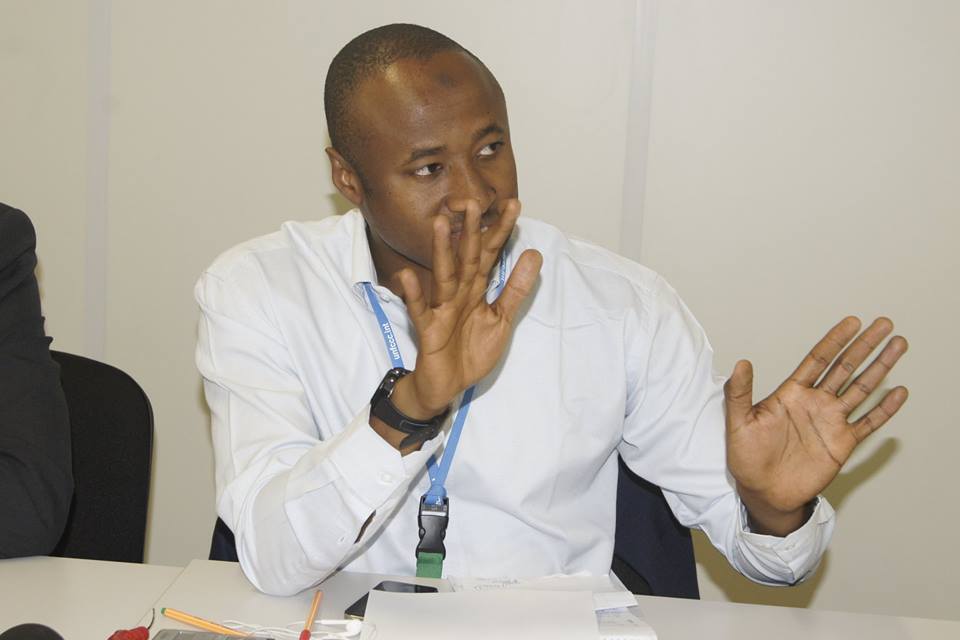
By Senyi Nafo
In a few short weeks, governments will meet in Paris to hammer out a new global climate change agreement and strengthen ambition to tackle climate change in the pre-2020 period. Africa is playing a key role in these negotiations and sees Paris as a crucial opportunity for the world to deliver an outcome that is science-based, fair and strengthens global rules and institutions to address climate change.
Among our key focuses is strengthening implementation of the existing UN Framework Convention on Climate Change (UNFCCC) in the pre-2020 period. This involves identifying new and better ways to cut greenhouse gas (GHG) pollution through practical cooperation among different countries, while realizing “synergies” and “co-benefits” in the effort to adapt to climate change and promote sustainable development.
Africa is also focused on ways to scale up action to protect vulnerable countries and people through a stronger “technical examination” of opportunities for adaptation to climate change. Africa is proposing a new “technical examination process” for adaptation and has strong support from other colleagues in the developing world, and growing interest from some developed countries.
Africa is not merely promoting stronger outcomes in the pre-2020 period at the negotiations. We are taking a lead at the continental level through the creation of a new Africa Renewable Energy Initiative designed to accelerate renewable energy deployment, enhance energy access and curb the growth of GHG emissions.
We are targeting at least 10 GW of installed capacity before 2020, and have set an aspirational goal of installing a massive 300 GW by 2030. This revolutionary programme now has the support of African Heads of State and has been recognized by political leaders in other developed and developing countries, including the G7 and China.
The Africa RE Initiative focuses on building integrated solutions to the twin challenges of universal energy access and climate change. The Initiative is premised on the fact that all societies, including those in Africa, need to transition to low and zero carbon energy systems in order to avoid catastrophic climate change. In accordance with commitments and principles under the UNFCCC, these efforts by Africa need to be supported through international public climate finance, among other sources.
The Africa RE Initiative highlights the fact that while ensuring appropriate electricity access for households and families, access needs to be sufficient to also drive the productive sectors in both local and national contexts for job creation, thriving economic development and increased resilience. This includes addressing the needs of small-scale farming and micro-, small and medium scale enterprises in terms of both quantity and quality of access, and entails a vision of electricity access beyond the bare minimum requirements for households.
For poor people, increased access to energy means a potential for improved livelihoods. The Africa RE Initiative will therefore promote unprecedented efforts to reach populations currently off national grids. The Africa RE Initiative will plan for expanded access to electricity for social services as African societies develop social security provisions and other means of improving welfare for their populations over the coming decades.
In parallel, we will set up a new African Initiative addressing adaptation and loss and damage, which will scale up regional cooperation to protect African lives, our food and water, and our sustainable development from growing climate threats. This reflects the massive threats to Africa as the most vulnerable continent to climate change and the rising impacts that our people, communities and environment are already facing.
The central aim of the African initiative on adaptation and loss and damage would be to expedite the development and implementation of concrete actions on these issues in Africa. The immediate time frame will be between 2016 and 2020. However, it is envisaged that the experience gained within this timeframe will be invaluable in enabling African efforts on adaptation and on loss and damage in the medium and longer term.
The initiative will make a major contribution towards broader international cooperation on adaptation as proposed by African countries, and towards assisting African countries to identify needs and make preparations during the 2016-2020 period, to fulfill their intended nationally determined contributions (INDCs) relating to adaptation.
We hope that, as well as strengthening global climate rules after 2020, Paris will deliver concrete new initiatives and outcomes to ensure that we are on course for a safe climate future well before then. In this sense, the outcome on pre-2020 ambition is a key deliverable for Paris and we look forward to working with all partners – in government, in business, in civil society, and in all affected sectors and communities – to make success a reality.
Nafo is the Africa Group Spokesperson and Lead Negotiator for Pre-2020 Climate Ambition










